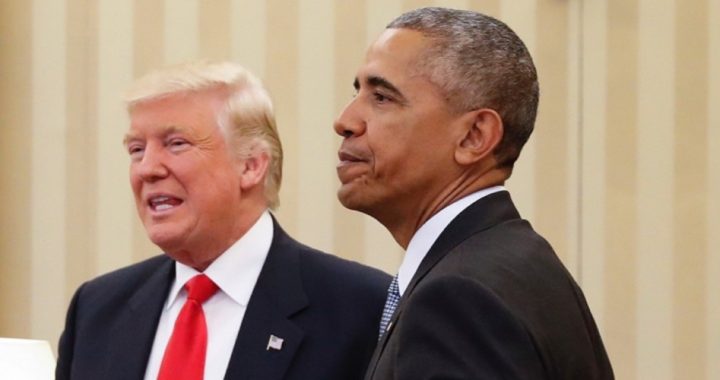
If you like your Castro, you can keep your Castro? Some may think this is Barack Obama’s attitude, given the president’s comments after Cuban dictator Fidel Castro’s death on Friday. In contrast, president-elect Donald Trump gave the tyrant the epitaph he deserved.
Posting his message at Facebook, Trump wrote:
Today, the world marks the passing of a brutal dictator who oppressed his own people for nearly six decades. Fidel Castro’s legacy is one of firing squads, theft, unimaginable suffering, poverty and the denial of fundamental human rights.
While Cuba remains a totalitarian island, it is my hope that today marks a move away from the horrors endured for too long, and toward a future in which the wonderful Cuban people finally live in the freedom they so richly deserve.
Though the tragedies, deaths and pain caused by Fidel Castro cannot be erased, our administration will do all it can to ensure the Cuban people can finally begin their journey toward prosperity and liberty. I join the many Cuban Americans who supported me so greatly in the presidential campaign, including the Brigade 2506 Veterans Association that endorsed me, with the hope of one day soon seeing a free Cuba.
For Obama’s part, he walked a line while speaking of a man who ever stepped over the line — and on his own people. As the president stated at the White House website:
At this time of Fidel Castro’s passing, we extend a hand of friendship to the Cuban people. We know that this moment fills Cubans — in Cuba and in the United States — with powerful emotions, recalling the countless ways in which Fidel Castro altered the course of individual lives, families, and of the Cuban nation. History will record and judge the enormous impact of this singular figure on the people and world around him.
For nearly six decades, the relationship between the United States and Cuba was marked by discord and profound political disagreements. During my presidency, we have worked hard to put the past behind us, pursuing a future in which the relationship between our two countries is defined not by our differences but by the many things that we share as neighbors and friends — bonds of family, culture, commerce, and common humanity. This engagement includes the contributions of Cuban Americans, who have done so much for our country and who care deeply about their loved ones in Cuba.
Today, we offer condolences to Fidel Castro’s family, and our thoughts and prayers are with the Cuban people. In the days ahead, they will recall the past and also look to the future. As they do, the Cuban people must know that they have a friend and partner in the United States of America.
While Obama stopped short of offering explicit praise, many find it troubling that he was so noncommittal about a committed communist tyrant. Castro certainly had “altered the course of individual lives, [and] families,” an example being Rosa Maria Payá, whose father was one of innumerable Cuban dissidents murdered by Castro’s thugs. Another example is Armando Valladares, a former U.S. ambassador to the UN Commission on Human Rights, who spent 22 years in Castro’s prisons.
Of course, some may see Obama’s statement as a diplomatic overture to the Cuban people, yet this further underlines the radically different world view separating him from Trump — and all traditional Americans. Obama’s message smacks of internationalism, focused as it is on an international community: Cubans in Cuba. Trump’s statement will appeal to a national community: the majority of Americans, including those of Cuban descent, who tend to oppose Castro. Trump also expresses the traditional American position, which involves opposition to Marxist tyranny (though it’s notable that he didn’t mention communism by name; this perhaps reflects the fact that many young Americans have, lamentably, a positive view of “socialism” and don’t understand the threat posed by Marxism).
Moreover, one could even question the diplomatic utility of Obama’s noncommittal tone. While the president may not want to give the Cuban regime ammunition for propaganda with which it can rally its people (“Look, the Yanqui aggression against us never ends!”), the reality is that the Marxist Castro regime is not popular on the island. As the Miami Herald’s Andres Oppenheimer reported in 2008, a “surreptitious poll conducted in Cuba earlier this year by the International Republican Institute shows that nearly 70 percent of people aged 19 to 49 said they would like a democratic system with multiparty elections, freedom of speech and freedom of expression.” Oppenheimer also provides a most interesting testimonial in this regard. It’s from Canek Sánchez Guevara, grandson of Che Guevara, the Argentine Marxist who was a major Cuban Revolution figure and close Castro ally. Relating what the young man (who now lives in Mexico) told him in a 1991 interview, Oppenheimer wrote:
“This revolution is in ruins,” he told me. “There is no food, there’s no freedom. People say it’s all because of the Yanqui aggression, but that’s a myth, as real as dragons and witches, a children’s tale.”
There was nothing for young people to do in Cuba, Canek told me. He was studying graphic design at an arts high school but considered it a waste of time.
‘“There’s no paper, no pens and no interest on the part of the teachers to do anything,” he said. “And if you graduate, there is no work in your field. They’ll ask you to go to the countryside and work in agriculture. This place is hopeless.”
Oppenheimer states that he heard these sentiments from many Cubans — often delivered in fear-induced whispers — even in the late ’80s and early ’90s. And it isn’t just the aforementioned furtive poll indicating that this goes beyond the anecdotal. As Oppenheimer concludes, the “Cuban government has a well-oiled polling machinery. If the Castro regime thought it could win a free election, and that Cubans were so proud of the revolution’s achievements, it would have allowed a free election long ago. If it hasn’t done so, it’s because it knows it would lose it.”
Tragically, however, Castro still has much support outside his frozen-in-time failed state. Journalists have roundly praised him, with ABC correspondent Jim Avila averring that “even to this day,” Castro is considered “the George Washington of his country among those who remain in Cuba.” Canadian prime minister Justin Trudeau eulogized the tyrant, calling him a “remarkable leader” who had a “tremendous dedication and love for the Cuban people”; and they, in turn, claimed Trudeau, “had a deep and lasting affection for ‘el Comandante.’” He also stated that his father, late Canadian prime minister Pierre Trudeau, “was very proud to call him [Castro] a friend.” Not to be outdone, Irish president Michael D. Higgins concluded a shamefully lie-infused, Orwellian statement with, “Fidel Castro will be remembered as a giant among global leaders whose view was not only one of freedom for his people but for all of the oppressed and excluded peoples on the planet.” This, about a man who thought the book 1984 was an instruction manual.
That some Western leaders will now openly praise an open Marxist is quite telling. The truth is that by fulfilling his personal communist dream, Fidel Castro dashed the dreams of generations of Cubans, who are still entombed in an economy whose vibrancy now, at least, finally matches his own.
Photo of President-elect Trump with President Obama in the Oval Office, January 10, 2016: AP Images
Related articles:



